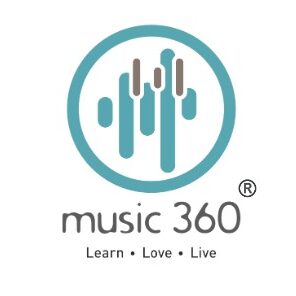Introduction
Learning the piano is a fulfilling journey, but everyone who wants to play the piano has this one question on their mind: “How long does it take to learn piano?” The answer depends on several parameters like how often you practice, how serious you are, and the way you learn. Whether you are a beginner who wants to play easy melodies or an advanced student who wants to be extremely proficient, this book will help you with a clear learning plan and realistic timelines.
At the end of this guide, you will have a good plan, helpful tips, and good practice techniques to assist you in learning the piano quickly.
Understanding the Phases of Learning
1. Beginner Stage (0-6 months)
Currently, you are engaged in the development of your core skills. You need to work on:
✅ Fundamental music theory is learned through studying notes, rhythm, and key signatures.
✅ Piano keys and where to put your hands.
✅ Repeating exercises of the fingers to increase proficiency.
✅ Playing simple melodies and simple tunes with both hands
✅ Practicing basic chords and chord progressions
✅ Developing sight-reading through the use of beginner-level music
Recommended Practice Time: 30-60 minutes per day, 5-6 days a week.
Time to Play Simple Songs: 3-6 months
2. Early Intermediate Stage (6 Months - 1 Year)
After you are comfortable with the fundamentals, it’s time to level up your skills:
✅Smooth playing on both hands.
✅ Scales, arpeggios, and exercises in hand independence.
✅ Understanding chords and how to play them differently.
✅ Enhancing sight-reading through more difficult sheet music
✅ Looking into different music styles like classical, pop, or jazz
✅ Performing whole songs with minimal changes in volume and feeling.
Recommended Practice Time: 45-90 minutes per day
Approximate time to play intermediate pieces: 6-12 months
3. Intermediate Stage (1-3 Years)
This is where the progress is made. Your playing will be more expressive and smoother.
✅ Playing difficult songs with precision and speed
✅ Properly mastering other scales and arpeggios
✅ Understanding intricate music theory (key changes, note shifts, chord progressions)
✅ Building a good sense of rhythm and timing.
✅ Repertoire expansion of multiple genres
✅ Sight-read intermediate-level sheet music with ease
✅ Playing with good dynamics, articulation, and pedal usage
Suggested Practice Time: 1-2 hours a day
Approximate time to execute advanced beginner to early intermediate pieces: 1-3 years
4. Advanced Stage (3-5+ Years)
When you arrive here, you will have complete mastery of the piano and will be able to play many different pieces.
✅ Performance of complex pieces (Chopin, Beethoven, Liszt, jazz improvisation, etc.)
✅ Proficiency in challenging music theory concepts (counterpoint, chord progressions, improvisation)
✅ Refining articulation, dynamics, and interpretive style
✅ Sight-reading at an advanced level
✅ Performing confidently in front of the audience
✅ Writing and notating music
Suggested Practice Time: 2+ hours a day
Roughly 5+ years to become proficient at Professional-Level Pieces
Things That Affect How Quickly You Learn
1️⃣ Consistency – Practicing every day is better than practicing for long periods once a week.
2️⃣ Self-Learning vs. Teacher – Having a teacher can help you progress faster under the right guidance.
3️⃣ Quality Practice – Struggling with unfamiliar pieces is less effective than focused and structured practice.
4️⃣ Natural Talent – Some students can understand musical ideas more easily, but effort is more than talent.
5️⃣ Musical Background – It will be faster if you know another instrument.
Best Ways to Learn Piano Fast
✅ Set Clear Objectives – Plan what you want to accomplish on a weekly basis.
✅ Practice with a Metronome – Assists with rhythm and timing.
✅ Break Down Songs – Learn the songs in fragments instead of trying to learn all at once.
✅ Record Yourself – Assists in recognizing errors and monitoring improvements.
✅ Join a Music Community – Have help from other students.
✅ Have fun! Having fun at what you do keeps you dedicated.
Frequently Asked Questions (FAQs)
Q1: How can I learn piano in 3 months?
Ans: You can acquire basic melodies and basic chords, but becoming a skilled pianist takes years of study.
Q2: Is 30 too old to learn piano?
Ans: Not at all! People of any age can learn and play the piano.
Q3: How many minutes should I practice daily?
Ans: Beginners: 30-60 minutes; Intermediate: 1-2 hours; Advanced: 2+ hours.
Q4: Am I learning piano more effectively through sheet music or learning by ear?
Ans: Both are required. Reading sheet music is a strong foundation, and playing by ear provides creativity.
Conclusion: How Long Will It Take You to Learn Piano?
That is based on how committed you are, how often you practice, and how effectively you practice. If you want to play for enjoyment, write your own music, or play professionally, having clear goals and a well-planned approach will allow you to achieve your dreams earlier
🎹 Are you ready to start learning piano? Join our free beginners’ piano course today! 🎹https://live.music360world.com/l/d78c897178
📌 Share this guide with your friends and invite them to learn piano!


